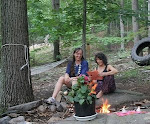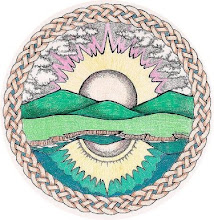I do hope you've noticed I’ve not been around here for awhile. I’d like that; to know my presence makes a difference, even a slight bit. Thank you.
Well, I’ve not been far. Just intently involved in one of the Small "Zones Of Peace" Projects favorite undertakings. July is the month we (Small “Zones Of Peace” volunteer leaders) prepare our “Conflict Resolution and Anger Management #101” presentation for the UNESCO Center for Peace, Model United Nations Camp.
We, especially, our veteran facilitator, Jim French, have come to love presenting this program. At the end of this year's presentation, Jim said that working with this young group of peace-builders gives him hope for the world. Jim's tireless and skillful contributions to our program, year after year, uplifts my spirit, too. They truly are an "awesome" group, these teens that gathered in Hagerstown, Maryland the past few weeks -- from around the world.
This year's group brought together young, dedicated peace-builders from as far away as Australia, Brazil, Columbia, China, India, Mexico and South Korea. Be sure to check out the massive scope of this summer camp and model United Nations program at http://www.opportunitiesforyouth.org/2009/11/29/18-31-of-july-2010-unesco-center-for-peace-inter.

It is a genuinely inspirational endeavor, offered as a result of the dedication and persistance of my dear friend, Guy Djoken, the program's executive director, and his beautiful, wife. Jinji Zhou.
This was our third annual presentation. However, we had been spoiled, I think now, by the ease with which we had been able to create a modicum of awe with the teen students in 2008 and 2009. Compared to this one, the previous two workshops were a breeze for us.
This year's challenge:
Close to 1/3, by my count, of the participating students spoke only Chinese (and, only through an interpreter). We didn't know that! Not until we found ourselves stuck in a puddle of polarization (a very banal one) that we had to tug ourselves out of for awhile.
We may not have reached the peak on our “Mountain of Awe,” however, we (our volunteer team and the students) get an A for having achieved the point of “elegant solutions.” And, bravo we have it all on video!
Thanks to a very industrious, creative summer volunteer, Kevin Paul. Kevin hopes to have the transformation we did achieve ready for YouTube, sooner rather than later, pending the limitations of his returning to St. Mary’s College in the Fall.
More to come soon.




